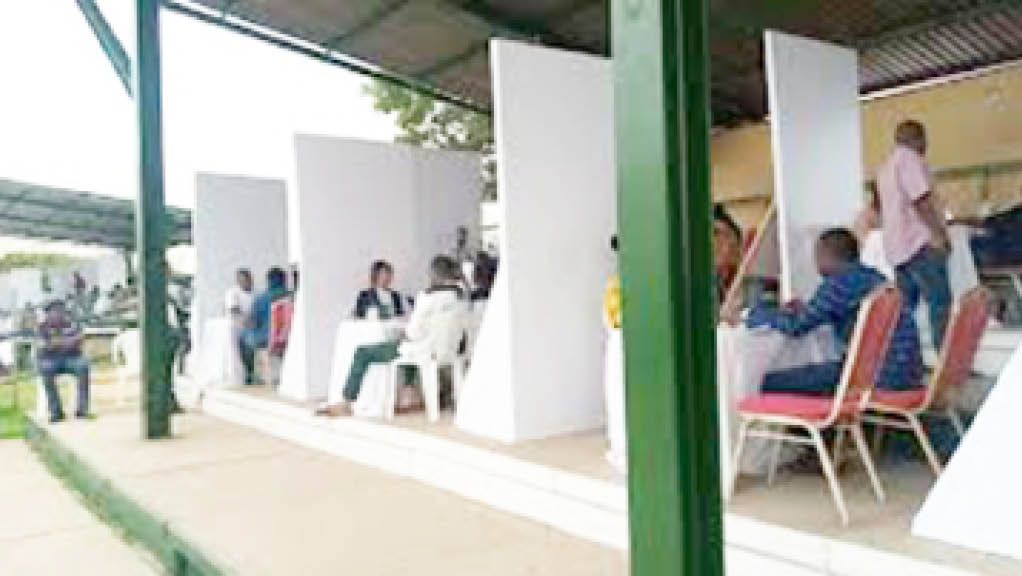The journey to the 2023 general elections has witnessed a surge in preparatory activities. These activities which will determine the success or otherwise of the much-anticipated elections, range from the drive by the Independent National Electoral Commission (INEC) to get more Nigerians registered through its ongoing Continuous Voters Registration (CVR) exercise, enactment of the Electoral Act 2022, the release of guidelines by INEC, political parties’ conventions, voter enlightenment and mobilization by several Civil Society Organizations (CSOs) and government agencies, INEC publication of the list of candidates nominated by political parties, amongst others.
Before now, the electoral umpire – INEC, had relied on the provisions contained in the Electoral Act 2010 for the conduct of elections for political offices. However, the document had some shortcomings, which led to the pressure mounted by stakeholders and lovers of democracy on the National Assembly for the enactment of a new Electoral Act that will meet the yearnings and aspirations of Nigerian citizens. The push resulted in several amendments to the Electoral Act 2010, which was sadly rejected by President Muhammadu Buhari for a record 5 times – citing reasons that ranged from cost of election, insecurity, drafting errors to proximity to the date of elections.
- Israel Adesanya beats Cannonier to retain UFC middleweight title
- Ex-Borno gov faults Nigerians travelling to European countries
The set backs occasioned by the rejections did not deter the resolve for a better, more transparent, credible and efficient electoral system and President Buhari, though expressing his reservations on section 84(12), finally assented to the Electoral Act Amendment Bill 2022 on February 25, 2022, thereby repealing the Electoral Act No. 6, 2010.
The Electoral Act 2022 is to regulate the conduct of Federal, State and Area Council elections, to make provision for the restriction of the qualification for elective office to relevant provisions of the Constitution of the Federal Republic of Nigeria, 1999 (as amended), use of card readers and other technological devices in elections and political party primaries, to provide a timeline for the submission of list of candidates, criteria for substitution of candidates, limit of campaign expenses, and address the omission of names or logo of political parties.
The Electoral Act 2022 has about 153 sections and each section deals with a specific subject matter. The Act is divided into various parts, which have substantive subject matter therein. For instance, Part I deals with Establishment and Functions of INEC, i.e. Sections 1 – 7; Part II deals with Staff of the Commission (INEC), i.e. Section 8; while Part III is headed ‘National Register of Voters and Voters’ Registration’ which encapsulates Sections 9 – 23; Part IV is on the Procedure of Election, which covers Sections 24 – 74; Part V deals with Political Parties, i.e. Sections 75 – 97; Part VI deals with Procedure for Election to Area Council, i.e. Section 98 – 113; Part VII deals with Electoral Offences, i.e. Sections 114 – 129; while Part VIII with the heading ‘Determination of Election Petitions Arising From Elections’ contains Sections 130 – 140; Part IX which is titled ‘Miscellaneous Provisions’ covers Sections 141 – 153.
Placeholder controversy
The concept of ‘placeholder’ has been a raging topic in the last few weeks following the completion of the nomination of candidates into various offices by political parties. Some presidential candidates have adopted this concept in the nomination of their potential vice presidential candidates. However, this has raised concerns as to whether the move is in tandem with the Electoral Act.
Recall that INEC had set June 17 as the deadline for the nomination of vice-presidential candidates following the completion of presidential primaries of political parties. To beat the deadline, some parties submitted names of vice-presidential candidates whom they described as placeholders. While Bola Ahmed Tinubu, the presidential candidate of the All Progressives Congress had forwarded the name of Kabiru Masari as placeholder pending when he would nominate a substantive vice presidential candidate, the Labour Party submitted the name of the Director-General of Peter Obi Campaign Organization, Dr Doyin Okupe, as the interim vice presidential candidate of the party.
Public opinion
Reacting to the development, Prof Sam Erugo (SAN) opined that the placeholder expression has no precise legal or technical meaning under Nigerian electoral law. His words: “In politics, placeholder is not a popular jargon in our political trajectory, that is not to say in our political history we have not had cases of parties substituting already nominated candidates, including, running mates of candidates, for permitted reasons.
“What appears to be novel or noteworthy is the current use of placeholder to represent a non-contender positioned as stand-in or surrogate nominee to temporarily satisfy the requirement of the electoral law as to timelines, but which expresses intention to subsequently substitute the nominees.
“The agitation or excitement over this newfound phenomenon in the form of stand-in or surrogate nominees is related to the unrestrained or rampant use of the model in the present political contestation. This essentially suggests intrigues, disorder or confusion on the part of the political parties in the selection of candidates leading to ingenious stratagems to circumvent the law.
“While the placeholder practice is probably not sanctioned, it appears not to be in the spirit of the regulatory framework of elections in Nigeria, regards being had to extant provisions of the Electoral Act 2022.”
A senior advocate, Adegoke Rasheed, said choosing a placeholder had implications should the person fail to step down. He said neither the INEC nor the courts could make such a person relinquish the position, adding that a placeholder could only be withdrawn if he died or voluntarily withdrew.
He said, “Using a placeholder has an implication. The Electoral Act requires that before a candidate can be replaced or substituted, he withdraws or resigns voluntarily; the age of substituting by fiat is gone. I want to believe that such a placeholder will yield to the party’s decision.
“The INEC can’t wade into this; it is an intra-party issue. The court of law cannot help in the matter, in fact going to court by such a political party will lead to the party invalidating his candidature. There’s no provision for a placeholder in the law but a party can do it, it doesn’t constitute an infringement of the law. Except if he dies or withdraws or resigns, a placeholder can’t be replaced.”
Contributing to the conversation, another senior lawyer and human rights activist, Femi Falana (SAN), said “There is nothing like placeholder in our laws. They have submitted names and that is it. All they can say is that those people may withdraw later, but there is no provision for placeholders in our laws.
“The constitution recognizes the fact that when you are submitting the name of your running mate, there is no primary for it. There is no primary for the office of the vice president or the deputy governor. So, the person nominated by the presidential candidate can withdraw at any time. Even a presidential candidate himself can withdraw. There is no fixation about it. Some of the things being said by some lawyers are rubbish.”
However, INEC’s National Commissioner and Chairman of the Information and Voter Education Committee, Festus Okoye, during an interview on Arise TV noted that running mates could only be substituted by any political party by writing the commission, and attaching an affidavit.
He said, “As far as we are concerned, there’s no form submitted by the presidential candidates where they said ‘we’re submitting this person’s name as a space or placeholder’.
“The issue of a space or placeholder is a unique invention that has no place in our constitutional and legal framework. The law says that as a presidential candidate, you must nominate an associate to run with you. And as far as the Independent National Electoral Commission is concerned, the presidential candidates have submitted their associates to run with them in the presidential election.
“Political parties’ candidates have submitted names of associates to run with them, and that is the position of the law as of today and nothing has changed. For there to be a substitution of candidate, the vice-presidential candidate must write to the INEC, with an affidavit stating that he is withdrawing from the race within the time frame provided by the law, as that is the only way there can be a substitution of candidates.”
It is pertinent to note that Section 31 of the Electoral Act 2022 states that “A candidate may withdraw his or her candidature by notice in writing signed by him and delivered personally.

 Join Daily Trust WhatsApp Community For Quick Access To News and Happenings Around You.
Join Daily Trust WhatsApp Community For Quick Access To News and Happenings Around You.


